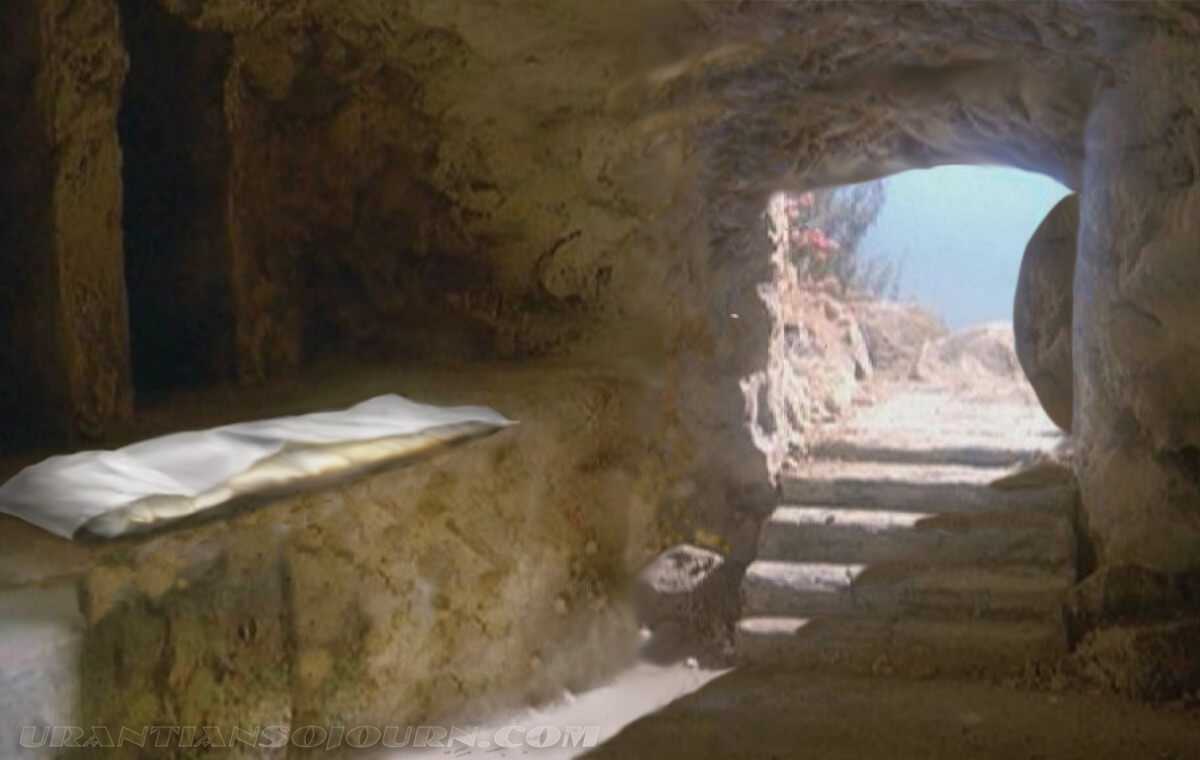Acts 10:34-43 Walter Brueggemann: “Easter us” John 20:1-18
A week ago, a friend who lives in Spain posted on his Facebook page a quotation from Edouard Loubet, the chef of the Domaine de Capelongue, a Michelin two-star restaurant in Provence. “A dinner is all about pleasure-sharing,” he said. “The food counts for only 20 percent, only 20 percent, no matter how extraordinary it is.” (NYT) Chef Loubet’s observation caught my attention for a couple reasons. First, I have to confess that when I have guests for dinner, I am disproportionately concerned about making sure the food is a success, so this was an instructive look in the mirror. Secondly, it also reminded me of a comment a parishioner made some years ago. They come to Holy Trinity, not because of the liturgy or music or the preaching, but because of the community they find here, and the individuals who make up this community.
An additional insight came to me later. I think I finally understand the story about Jesus’ good friends, Mary and Martha. Jesus is visiting them in their home in Bethany. Martha is in the kitchen preparing food, and Mary is in the living room, listening to Jesus. When Martha chides her sister for not helping her in the kitchen, Jesus responds in a surprising critique of the gender role stereotyping of the day by supporting Mary’s choice as more important. As Edouard Loubet put it, “The food counts for only 20 percent, only 20 percent, no matter how extraordinary it is.”
On this day when we recall the extraordinary story of God’s victory over death, we are mindful that this “surprise” stands in a long series of surprises that have been recorded by God’s people over time. There is the story of the Hebrew people, who had migrated to Egypt in search of food during a famine, becoming, over the generations, a slave workforce, not entirely unlike immigration patterns that exist in the world today. The story of their escape from the Pharaoh and deliverance at the Red Sea, when extinction seemed inevitable, is a story Jews retold this week during Passover, and we recalled last night at the Easter Vigil.
Flash forward a few hundred years. There is a clash of empires, and the region we call the Holy Land, is geopolitically placed in the middle of things. God’s people end up being taken into exile. Again, it looks like extinction—this time by assimilation. But a Persian king named Cyrus, someone who was not even a believer in the God of Israel, becomes the political power who liberates the Jews from Babylonian captivity, and allows them to return to their homeland. For this, Cyrus is referred to in the Hebrew scriptures as “God’s anointed one (mashiach).”
If there is a pattern emerging, it is that God’s people have a long history of experiencing life-threatening political situations, and yet being mindful that God is with them in the midst of their daily horrors. This week we have retold the story of how, through political manipulation, Jesus’ opponents succeeded in having him put to death, believing that would put an end to the message about God that he proclaimed. It is a strategy that has been used by tyrants in every age. But the God of many surprises will not be silenced by tactics such as these.
Even when God’s followers lose their way, and institutions like the church move in misguided directions, as we have seen over and over in our history, from the Spanish Inquisition to residential schools, the corrective is to be called back to God’s original vision with new eyes, new resolve. When Jesus was asked what the most important commandment was, he responded by quoting words from the Torah: “Love God with all your heart, soul, and mind;” and “love your neighbour as yourself.” The first sentence of the Preface to the first Book of Common Prayer, in 1549, states that “[t]here was never any thing by the wit of man so well devised , or so sure established, which in continuance of time hath not been corrupted.” There are so many ways we humans can get things wrong, and because the innovations continually change the playing field, there will never be an end to our capacity to getting things wrong.
‘Disruptive innovation’ is a phrase that has been circulating since a Harvard business professor coined it in the mid-1990s. It originally referred to behaviour in the marketplace, but has been expanded to include innovation with “significant societal impact.” Practically every day we hear about new things that will impact our lives. I’m sure people were thrilled to learn that in certain places in the world internet service providers will now be able to sell one’s browser history to any curious party. And what a delight it must be to allow border security folks to scrutinize the contents of your cell phone, in order to keep us all safe from terrorists.
I’d say that the God of many surprises mastered disruptive innovation at the beginning of creation, and has been practicing it ever since. As the writers of the Hebrew scriptures imagined it, after God created Adam, God came to the realization that it was not good for the man to be alone. A person needs companionship. And, as scripture tells it, it was Adam who got to decide who was a suitable companion. The disruptive innovation was companionship; but God left the choice of companion to each human being.
We should not be surprised when Isaiah quotes God as saying, “I am about to do a new thing,” because that is one of God’s essential attributes. As we gather to remember the story of a surprising visit to a tomb by women with a clear expectation, only to discover their reality completely thrown off balance by what they discovered there, we, from our post-Christian world-view, may be skeptical or dismissive of these claims. As we heard in the Acts reading this morning, there were many others who also experienced what they considered to be experiences of Jesus’ resurrected presence. It was authentic to them. It may be a complete mystery to us. Or… we may have our own experience of Christ’s living presence in our lives or in our community. If we could completely understand or explain it, where would God’s fathomless mystery be?
And so we use the language of faith when we assert that God continues to surprise us in ever new ways. As Walter Brueggemann, the legendary biblical scholar, in the prayer/poem we heard as our second reading, notes: “You God who…scared the wits out of chaos…. are the same God to whom we turn in our days of trouble and in our weary nights…. Easter us, salve wounds, break injustice, bring peace, guarantee neighbour. Easter us in joy and strength.”
Building community has been part of the DNA of Holy Trinity for nearly 170 years. We have done it in a variety of ways: by welcoming immigrants escaping famine, or refugees fleeing civil war, or sexual minorities persecuted by other churches and civil law. In a world where so often the spiritual dimension of life is devalued or dismissed, we, and countless other communities around the world, gather each week to recall the sacred mystery that lies at the heart of our lives, that we were all created for companionship on this journey, and the God of many surprises will continue to disrupt our expectations with new ways of being faithful in the world.






